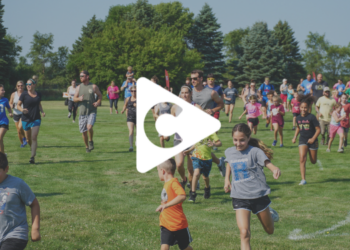Can you imagine a shift in the ideal model for youth sports to define success as players trying their best and giving it all they have?
Imagine a culture centered around young players enjoying the game in a positive environment that encourages, motivates and inspires them to enjoy learning and developing skills while igniting a passion for the sport. Visualize a special place where parents, fans, coaches and instructors unite to create an environment that nurtures and encourages the values of grit, persistence, hard work, fun, friendship and competition, while accepting failures and mistakes as ways to grow and learn.
All of this allows players to enjoy the experience of being young athletes on a sports team. Especially when leaders teach young athletes that sports teams are places to socialize, be physically active, have fun with their friends, and learn new skills to live healthy and full life.
Learn More: Girls in Sports – Tools to Understand and Improve Engagement
Winning sports doesn’t create a healthy and well-balanced life. That life is found in the behaviors young athletes perform consistently, such as socializing, physical activity, hard work, and learning and practicing coping and movement skills. As adults, we want to encourage youth athletes to participate, have fun and try their best so they can continue to practice hard, gain more skills and live a healthy lifestyle. Adults must learn effective communication strategies when working with youth athletes.
Adults should make sure they are communicating effectively before, during and after youth sporting events. An example of this would be to tell a young athlete before a game or practice that you are looking forward to watching them smile and have fun with their teammates. During a game, you might say, “Wow, that was a great effort you displayed!” After a game or practice, you could say something encouraging and positive such as, “I am proud of you for giving it all you had.” Then allow the youth athlete to discuss their experiences while you listen and attend to them by using eye contact and positive body language.
It is important in these moments not to lecture or criticize. The youth athlete might choose not to discuss the game or practice — that is also OK and you should respect their decision. If that happens, you might have a conversation about something else or go about your day.
Learn More: Ingredients for a Strong Youth Sports Program
When someone receives a lecture or criticism, the receiver of the information often tunes the speaker out and it becomes an aversive experience. Thus, lectures and criticism are not effective forms of communication. Less talking and more listening without judgment are more effective.
Responding positively with inspiring and encouraging words is also important. Just like youth athletes need to practice their skills to gain fluency, adults must practice positive communication. Everyone wins when we give our best efforts to create a positive environment for young athletes in youth sports.
Want more resources like this sent straight to your inbox each week? Sign up for a digital subscription here.











